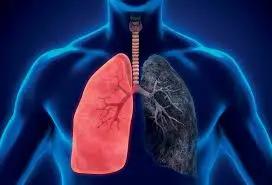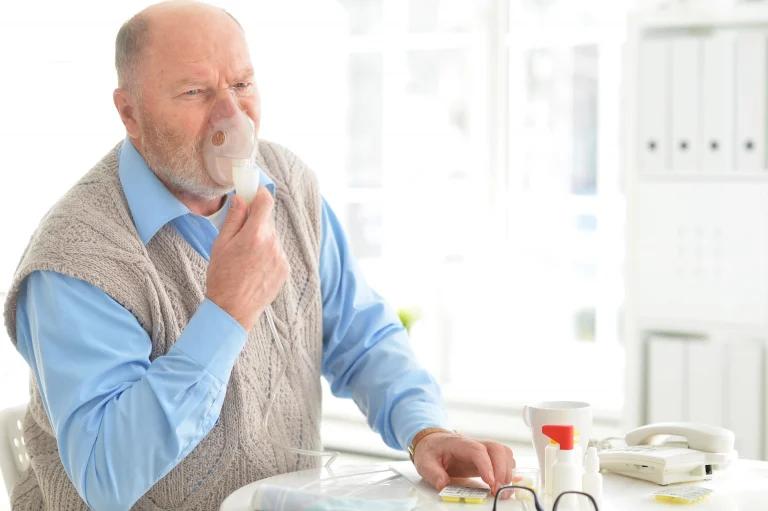
What is COPD?
Chronic Obstructive Pulmonary Disease (COPD) is one of the most common respiratory diseases in the UK, affecting more than 3 million people, and men more than women. It is the name given to a collection of lung diseases, that includes chronic bronchitis, emphysema and chronic obstructive airways disease. With COPD patients, the airways, or tubes that carry air in and out of the lungs are partially blocked, making it more difficult to breathe.
- Emphysema – this lung disease causes the destruction of the fragile walls and elastic fibres of the alveoli. The small airways collapse when you breathe out, impairing airflow out of your lungs
- Chronic bronchitis – in this condition your bronchial tubes become inflamed and narrow, your lungs produce more mucus, which can further block the narrowed tubes. You may develop a chronic cough from trying to clear your airways
What causes COPD?
The main cause of COPD is usually long-term exposure to irritants that damage your lungs and airways. Cigarette smoke is the main cause, but pipes, cigars, and other types of tobacco smoke are also risk factors that cause COPD, but nonsmokers can get COPD too. COPD most often occurs in people aged 40 and over who are current or previously smoked.
Around 1 in 100 people with COPD have a genetic condition, called alpha-1-antitrypsin deficiency (AAT) that increases their chances of developing COPD. AAT is a substance that protects your lungs. Without it, your lungs are more vulnerable to damage. People who have an AAT deficiency usually develop COPD at a younger age, particularly if they smoke.
COPD can also occur in people who have had long-term exposure to substances that can irritate their lungs, like chemicals, dust, or fumes in the workplace. Heavy or long-term exposure to secondhand smoke or other air pollutants may also contribute to a higher risk of COPD.
Over time, the damage caused by inflammation tends to lead to damage of the lungs. The walls of the airways thicken and more mucus is produced. Damage to the walls of the air sacs in the lungs causes emphysema and the lungs lose their normal elasticity. The smaller airways also become scarred and narrowed. These changes cause the symptoms of breathlessness, cough and phlegm associated with COPD. People with COPD also have an increased risk of developing heart disease and lung cancer.
What are the symptoms of COPD?
The main symptoms of COPD include:
- Breathlessness
- Feeling short of breath while doing everyday activities
- Producing excess sputum
- A chronic cough (smoker’s cough)
- Wheezing
Some people with COPD may get frequent respiratory infections such as colds and the flu. In severe cases, COPD can even cause weight loss, weakness in your lower muscles and swelling in your ankles, feet or legs. Studies have also found patients with COPD required ventilation and intensive critical care in greater proportions when diagnosed with coronavirus.
How is COPD diagnosed?
Spirometry is a common, non-invasive lung function test that can detect COPD before symptoms become more severe. It measures the amount of air you can blow out of your lungs and how fast you can blow it out. Your doctor can then tell if you have COPD and how severe it is. Your spirometry reading can help your health care provider decide the best course of treatment.
Diagnosis of COPD would normally begin with a review of your medical history and symptoms, as well as a physical exam. In the early stages of COPD, a physical exam may show very little except wheezing when breathing out. As your disease develops, your lungs will begin to show signs of over-inflating with air.
Can I reverse COPD?
Sadly not, once the damage to your lung tissue has been done. However, if you stop smoking, it will help to slow down the progression of the disease and improve your quality of life.
Over time, COPD will make it harder for you to breathe. Although you can’t reverse the lung damage, medication and lifestyle changes can help you manage the symptoms.
What medication will I need to take for COPD?
The first thing is to quit smoking. There are many online resources and several new aids available from your health care provider.
You should follow your usual steps to manage an exacerbation or flare-up, including getting medical help if you need to. Treatments include:
- Inhaler medications, such as bronchodilators to open up the airways
- Corticosteroids to reduce inflammation
- Antibiotics
- Oxygen therapy
- Pulmonary rehabilitation (exercise, education, and support)
- Procedures to improve lung function
- Surgery is only an option for a small number of people with COPD
Taking medication as prescribed is important and being as active as possible is encouraged.
What is life expectancy like with COPD?
While COPD is the number three cause of death worldwide, death rates have actually decreased. COPD does not progress in two-thirds of people. In fact, lung function in 8% to 10% of well-treated patients improves over time.
Early detection of COPD and prevention is key. Protect yourself by quitting smoking, reducing exposure to air pollutants, getting vaccinations for influenza and pneumonia and getting the medications necessary to stabilise what was once thought to be a progressive disease.
Life expectancy usually depends on what stage of COPD you are diagnosed as having and if you make changes in your life quickly.
Sources
Medical Disclaimer
NowPatient has taken all reasonable steps to ensure that all material is factually accurate, complete, and current. However, the knowledge and experience of a qualified healthcare professional should always be sought after instead of using the information on this page. Before taking any drug, you should always speak to your doctor or another qualified healthcare provider.
The information provided here about medications is subject to change and is not meant to include all uses, precautions, warnings, directions, drug interactions, allergic reactions, or negative effects. The absence of warnings or other information for a particular medication does not imply that the medication or medication combination is appropriate for all patients or for all possible purposes.








